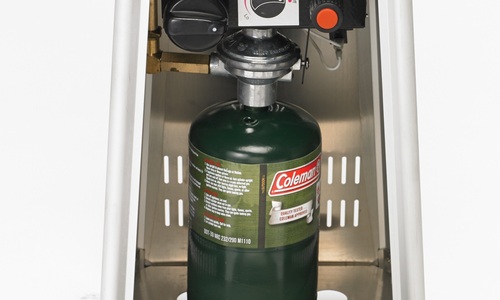Gas vs. Electric Heating
Gas vs. Electric Heating: Which is Better for Your Home?
5 minute read |

Heating your home is a crucial part of daily life, especially in colder regions. Choosing between gas and electric heating can be a big decision. Each has its own advantages and disadvantages. Let's take a closer look at how they compare.
Understanding HVAC and Home Heating
There are two main types of electric heaters:
Radiation heaters – These use infrared radiation to heat objects directly, rather than the air. They are great for spot heating and are often used in garages or patios. A reflector helps direct the heat where it's needed most.
Convection heaters – These work by warming the air around them, which then rises and is replaced by cooler air. This cycle continues, creating a steady flow of warm air. Convection heaters are ideal for enclosed spaces like living rooms or offices.
Ceramic and oil-filled radiators are common examples of convection heaters. They provide consistent warmth but may take longer to heat up compared to radiant options.
Types of Gas Heaters
Gas heating systems come in two main forms:
Flued heaters – These require proper ventilation and must be installed by a professional. They are typically permanent fixtures and are designed to safely vent combustion gases outside.
Non-flued heaters – Also known as vent-free or flueless heaters, these do not require a chimney or vent. However, they must be used in well-ventilated areas to prevent the buildup of harmful gases.
Installation Considerations
Gas heaters usually require professional installation due to the need for proper ventilation and safety regulations. They also tend to be larger and more complex than electric models. On the other hand, electric heaters are portable and easy to set up. Wall-mounted units may require some installation, but it’s generally simpler and less expensive.
Cost Comparison
The initial cost of installing a gas heater is higher due to the need for ductwork and a central furnace. Electric heaters, however, are often more affordable upfront. Over time, though, gas heating can be more cost-effective, especially if gas prices are lower than electricity rates.
Operating Costs
Gas heaters tend to produce more heat per unit of fuel, making them efficient for large spaces. They also have lower operating costs when gas is cheaper than electricity. Electric space heaters are best suited for small rooms or personal use, as they consume less energy when used sparingly.
Safety and Maintenance
Electric heaters are generally safer for indoor use because they don’t emit combustion byproducts. Infrared heaters should be placed away from flammable materials. Gas heaters, on the other hand, require proper ventilation and should always be turned off before going to sleep.
Tip: Heating systems can dry out the air, which may cause skin irritation. Using a humidifier can help maintain a healthier indoor environment.
Popularity and Climate
Gas heating is more popular in colder regions like the Northeast, where it provides reliable warmth over large areas. In milder climates, electric heating might be preferred due to lower demand for intense heating.
Gas vs. Electric Heaters: What’s Best for You?
If you're looking for a personal heating solution, radiant heaters are a good choice. They provide quick, targeted warmth and are ideal for small spaces. Gas heaters, while slower to heat up, offer long-lasting warmth for larger areas. Electric heaters, on the other hand, are versatile and easy to use.
Both heating methods have their pros and cons. For smaller homes or individual rooms, electric heating is often more practical. For larger households or colder climates, gas heating may be the better option.
Choosing the Right System
Gas heating is ideal for larger spaces and faster heat distribution. However, it requires proper ventilation and professional installation. Electric heating is more flexible and easier to manage, especially in homes without chimneys or vents.
Want more information? Have a question? Contact us today, and we will be happy to help!
Wafer Ends Ball Valve,Wafer Ball Valve,Stainless Steel Ball Valve,Stainless Steel Wafer Ball Valve
RST VALVE GROUP CO.,LTD , https://www.stainlesssteel-valves.com